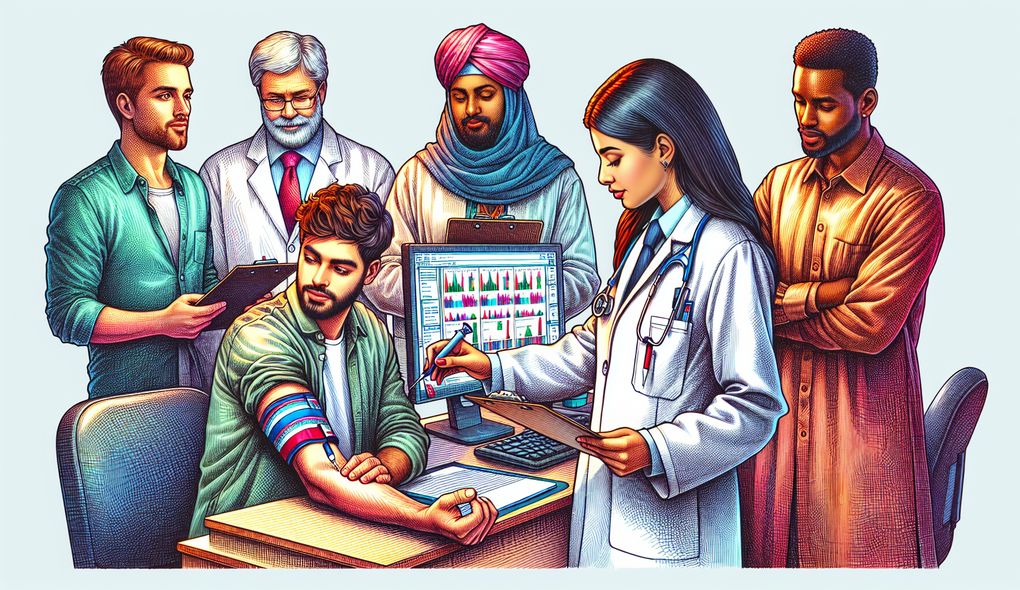How do you train study staff on trial procedures and documentation?
SENIOR LEVEL

Sample answer to the question:
When it comes to training study staff on trial procedures and documentation, I take a hands-on approach. I start by creating a comprehensive training program that covers all the necessary protocols and procedures. I believe in the power of interactive learning, so I incorporate group discussions, role-playing exercises, and case studies into my training sessions. This way, the staff members can truly understand the importance of following the procedures and documentations accurately. Additionally, I provide them with detailed written materials, such as training manuals and job aids, that they can refer to whenever they need clarification. To ensure the effectiveness of the training, I conduct assessments and evaluations to identify any knowledge gaps and provide additional support as needed. Throughout the trial, I maintain open lines of communication and encourage regular feedback from the study staff to address any challenges or concerns that may arise.
Here is a more solid answer:
Training study staff on trial procedures and documentation is a crucial aspect of my role as a Senior Clinical Trial Coordinator. To ensure a comprehensive training program, I start by conducting a thorough needs assessment to identify the specific training requirements of each staff member. Based on this assessment, I develop a customized training plan that incorporates a combination of classroom-style sessions, hands-on exercises, and online modules. I create training materials, including SOPs, job aids, and interactive presentations, to provide the staff with a clear understanding of the trial procedures and proper documentation practices. Throughout the training, I emphasize the importance of attention to detail and compliance with regulatory requirements. To evaluate the effectiveness of the training, I conduct regular assessments and gather feedback from the staff. This allows me to address any knowledge gaps and provide additional support if needed. Moreover, I maintain open lines of communication, encouraging the staff to ask questions and seek clarification whenever necessary. By following this approach, I ensure that the study staff is well-equipped to perform their roles efficiently and accurately.
Why is this a more solid answer?
The solid answer improves upon the basic answer by providing specific details and examples. It addresses the evaluation areas of Training and Development, Communication, and Attention to Detail by mentioning the needs assessment, customized training plan, training materials, emphasis on attention to detail and compliance, regular assessments, feedback gathering, and open communication. However, it could still provide more examples or specific strategies for training and development.
An example of a exceptional answer:
Training study staff on trial procedures and documentation is a vital responsibility that I take very seriously as a Senior Clinical Trial Coordinator. To ensure the staff's proficiency and compliance, I employ a multifaceted training approach. First, I conduct an initial orientation session to familiarize the staff with the trial objectives, protocols, and regulatory requirements. I then organize interactive workshops that cover a wide range of scenarios and decision-making exercises to reinforce their understanding. These workshops include case studies, role-playing activities, and group discussions, allowing the staff to apply their knowledge in practical situations. Additionally, I implement e-learning modules that enable the staff to access training materials and resources remotely, at their convenience. To enhance attention to detail, I provide hands-on training on documentation practices, emphasizing the significance of accuracy and completeness. Throughout the training, I facilitate open communication channels, encouraging the staff to share their experiences, ask questions, and engage in peer learning. To evaluate the training effectiveness, I conduct knowledge assessments, observe staff performance, and gather feedback. Based on the results, I offer targeted support and further training as needed. By taking this comprehensive approach, I ensure that the study staff is well-prepared to execute trial procedures and maintain accurate documentation from start to finish.
Why is this an exceptional answer?
The exceptional answer goes above and beyond the solid answer by providing even more specific details and examples. It addresses the evaluation areas of Training and Development, Communication, and Attention to Detail by mentioning the initial orientation session, interactive workshops with various activities, e-learning modules, hands-on training on documentation practices, open communication channels, knowledge assessments, performance observation, feedback gathering, targeted support, and further training. It also emphasizes the importance of proficiency, compliance, accuracy, and completeness in training study staff. It could further improve by mentioning specific strategies for gathering feedback and offering targeted support.
How to prepare for this question:
- Familiarize yourself with the trial procedures and documentation requirements commonly used in clinical trials.
- Develop a deep understanding of the regulatory requirements and guidelines for conducting clinical trials.
- Research different training methodologies and best practices in adult learning to enhance your training approach.
- Practice creating comprehensive training materials, including SOPs, job aids, and interactive presentations.
- Brush up on your communication and interpersonal skills to effectively convey complex information to study staff.
- Consider incorporating technology-based solutions, such as e-learning modules, to enhance training accessibility and flexibility.
- Prepare examples or case studies to discuss during the interview that demonstrate your experience and effectiveness in training study staff.
- Be prepared to discuss how you evaluate the effectiveness of your training programs and how you address any knowledge gaps or challenges that arise.
What are interviewers evaluating with this question?
- Training and Development
- Communication
- Attention to Detail

